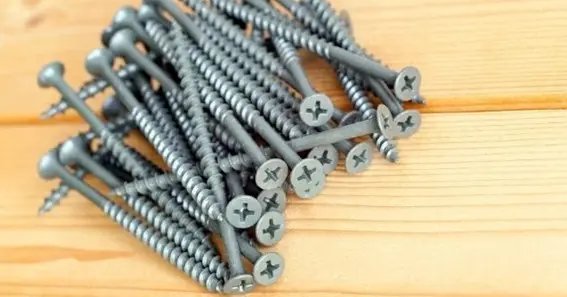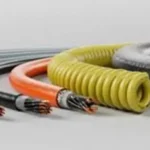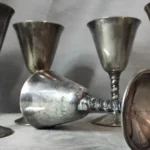What is a lag bolt? Whether you’re working with concrete or wood, you need the tools to fix your builds tightly. A lag bolt is one of the best ways to hold things together. In big home improvement projects, lug nuts are used. They are also sometimes called lag screws. Lag bolts come in bunches of different formats. Let’s get some knowledge of what is a lag bolt.
What Is A Lag Bolt?
Lag bolts, sometimes called lag screws, are big wood screws with hexagonal heads that are great for home jobs like fixing your new flat-screen TV. Some things shouldn’t fall, so we love lag bolts. For example, using heavy-duty lag bolts to hang your TV might be overdone. It is common to use lag screws to attach something temporarily to wood after cutting a pilot hole into the wood board that will hold the object in place. let us explore what is a lag bolt?
Also Read : What Is Loroco? What All You Need To Know About Loroco
When Do You Use Lag Bolts?
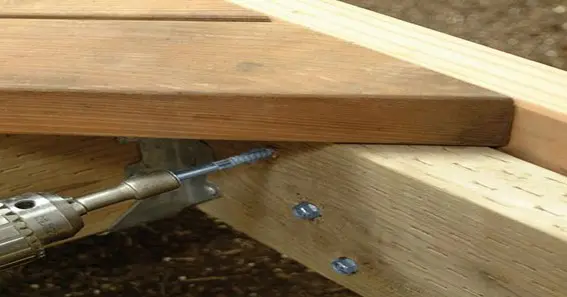
We will jump into this section after knowing what is a lag bolt. Lagging nuts are useful for many weight-bearing tasks but are often seen in home building, especially for holding down the lam beams that support the second floor. Additionally, lag bolts are also used for several other important tasks.
Decking
People who want to attach a wooden deck to the back of their house must use lag bolts to ensure the whole thing is safe and can support the weight of several people and furniture. Lag bolts hold the wooden parts connecting the decks to the house.
Concrete
Conversely, many houses and public buildings, like stores, are concrete. Lug nuts are an important part of any concrete building that wants to add a deck because they ensure the whole thing is strong and safe.
Brick Work
You can also use lag bolts to attach things to brick, like a deck or an outdoor gazebo. Lagging nuts are perfect for joining materials together, even if they are not the same quality or strength.
Steel
If lam beams need to be stronger, steel beams are the best way to support the second floor of a house. A mix of iron and carbon makes these strong and long-lasting. Lag bolts can hold them in place, and they usually last longer and withstand the weather better than wooden beams. Metal roofing is also popular in some buildings, like industrial ones. Lag bolts are a great way to attach the steel sheets to the flooring so they don’t come off in high winds or other bad weather.
Parts Of A Lag Bolt
A lag bolt has three main parts: the head, the shank, and the threads. Bolt’s heads are hexagonal or square to allow wrench or ratchet driving. The shank is where the threads begin for easy driving into the wood. Lastly, the threading helps create friction between the two materials being joined. This makes the connection stronger and keeps it from slipping or coming loose over time.
Also Read : What Is The Fastest Dinosaur And Its Physical Characteristics?
Uses For Lag Bolt
The most common places to use lag nuts are in woodworking projects like decks and outdoor buildings like sheds and playhouses. In addition, they are often used to connect metal parts to wood. However, they don’t have to be used in these situations; they can be used anywhere strong links between two materials are needed. This includes fixing furniture, fixing cars (like anchoring body panels), and even putting in concrete (like wall anchors).
Why Are Lag Bolts Good?
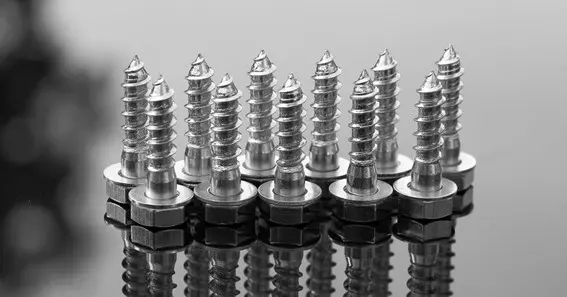
Lag bolts are better than other fixings, like screws and nails, in several ways. Because they are bigger, they have more surface area to grip onto material surfaces, which makes the links stronger than screws. Their tapered shanks make it easier for them to drive into wood than other fasteners. This makes them perfect for quickly putting together big buildings without sacrificing strength or sturdiness. Finally, the galvanized finish helps keep them from rust that can happen over time from being wet, which makes them last even longer.
Lag Bolt Properties
- Lag bolts are big, strong screws that hold things together, like wood and other things.
- A lag bolt’s curved, cone-shaped head keeps it from falling out of the hole.
- Lag bolts have very rough threads that help keep them in place.
- High-strength steel makes lag bolts, so they last a long time.
- Putting lag bolts correctly the first time is crucial since they are hard to remove.
Conclusion
Due to their strength and ability to quickly and firmly connect two materials, lag bolts have been around for hundreds of years. All their parts must work together smoothly for strong links that will last a long time with proper care and upkeep. If you’re putting together a new deck or fixing an old piece of furniture, lag bolts should be your first choice for fastening. Do you know what is a lag bolt?
FAQ
Why Would You Use A Lag Bolt?
Lag screws, often known as lag bolts, join heavy timber and other load-bearing materials. They differ from wood, sheet metal, and self-drilling screws.
How Do I Pick Out A Lag Bolt?
Most of the time, the lag bolt you buy should be 1/4 inch shorter than the width of all the pieces you connect. 5/16-inch nuts are most often used. But if your build is heavy, you might want to use a 3/8-inch screw or a bigger one.
What Do You Need To Install Lag Bolts?
You can’t use a normal tool to tighten lag screws because their heads are hex. It would help to use a wrench or a nut driver to make them tighter. Glue a nut to the other end of the lag screw to make the weight of it spread out evenly along the shaft.
What Grades Do Lag Bolts Come From?
Astm A307 Grade A lag screws are made from soft steel and have low strength.
Do You Need Support For Lag Bolts?
While it’s not hard to put a lag screw into concrete, you will need a base to do it right.
Which Screws Are Stronger And Lag Bolts?
Structural screws last more time than lag bolts also they are much stronger than lag bolts.
Sources:
https://style-squeeze.com/lag-bolts-everything-you-need-to-know/
https://monsterbolts.com/blogs/news/lag-bolts
https://www.oldwestiron.com/blogs/news/tool-talk-everything-you-need-to-know-about-lag-bolts
We have covered all the below topics in the above article
Lag bolt
Fastener
Heavy-duty screw
Woodworking
Check out here for a more interesting article what-is-a-gig-line
